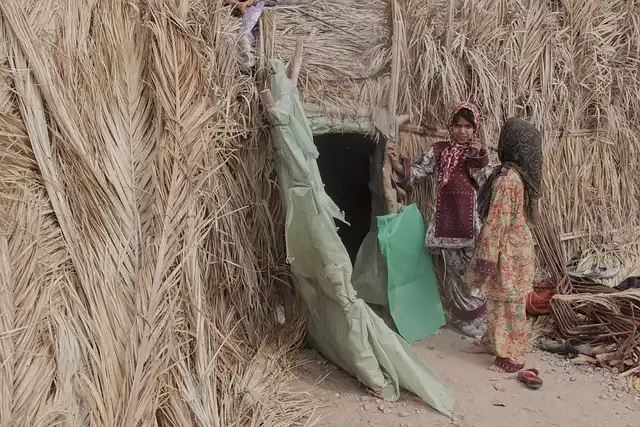The Voice defeat set us all back. And since then, our leaders have given up

These ideas fall into the same tired policy stereotypes of throwing money at some of the usual organisations and peoples who have long benefited, and claiming this solves the systemic problems we face.
I am not bringing up these concerns once more to relitigate the problems of the vote. Instead, I want to ask a very vital question: the Voice to Parliament was designed to resolve our systemic downside, so what options to these significant structural problems have any one of the No advocates supplied in the previous year?
To paraphrase myself from February’s Closing the Space statement: the next time you face an MP, ask what their plan for Native individuals is. Ask not just about shutting the gap, but to repair the architectural problems that so plainly disadvantage our individuals.
Study adhering to the vote shows that 87% of Australians assume Initial Nations individuals should be able to determine for ourselves concerning our way of living. 64% assume the negative aspects encountered by our areas call for extra government attention, and 68% believe this negative aspect comes from “past race-based plans”.
These concepts fall into the exact same weary policy stereotypes of throwing money at several of the common organisations and individuals who have actually long benefited, and declaring this solves the systemic issues we face. The problem isn’t money, it’s the really regulations of the video game.
The ballot represents a minute of deep sadness and frustration for numerous First Nations people for the shed possibility to move in the direction of significant modification in our lives, communities and for our futures. Old individuals and several elders will likely not live to see change.
The media’s failing to grapple with Native concerns and dogmatic insistence on giving prominence to “both sides” of the discussion.
Even if Australians supported the concepts behind the Voice in the abstract, neither they neither the media were gotten ready for the degree of dishonesty and bad dealing from the No campaign. It was never a reasonable fight.
The search of market-based wealth for some blessed couple of Initial Countries individuals and communities, under the role of closing the void, as well as focusing on the overexaggerated benefits of renewable energy as a chauffeur of Native financial power, is not “economic advancement” for all crowds.
We have seen some plans from the Coalition. Plans to decrease “fly in, fly out” workers in remote neighborhoods. Reforming land civil liberties and native title. An imperial payment into youngster sexual assault in Indigenous areas. Much less need for programs with “a particular Aboriginal emphasis” in metropolitan areas, where most Very first Nations individuals live.
According to the very same data, 87% of Australians concur it is “important for Very first Nations peoples to have a voice/say in issues that affect them”. This jumps to 98.5% among Yes voters, yet also is true of 76% of No voters.
Several of these are just a rehash of stopped working Coalition plans of the past, as several others have actually mentioned. Some appear to have come personally from Senator Jacinta Cost and are apparently not backed by specialists (or many people in Aboriginal neighborhoods). Others seem linked directly right into conventional political talking factors, rather than really addressing Indigenous demand.
Albanese treating the referendum like a political election campaign but without the normal level of resourcing and advocacy. The Coalition’s outright resistance to the idea (despite previous indicators of support). The media’s failing to face Aboriginal problems and dogmatic persistence on giving prominence to “both sides” of the argument.
The Coalition and various other leading No campaigners clearly have no strategies to attend to the architectural concerns facing our peoples. They’re just using even more of the normal plan tinkering and seesawing we have actually seen far frequently prior to.
The genuine job, then, gets on civics education and learning, obtaining individuals to recognize that the architectural problems they can see need architectural adjustment; however additionally making them much more aware of the results of false information. It’s not right that proposals that must get the support of the Australian individuals can be thwarted the method this was.
The federal government’s current attempts at Indigenous plan continue to be workouts in looking for permission over authentic assessment. Its proposed “financial empowerment” program for Initial Nations peoples is an ideal example.
Projects similar to this are something we as a country have not concern terms with. We have actually seen in the USA exactly how effective misinformation can be at complex people, developing incorrect senses of truth and misshaping public perception.
The Voice to Parliament stood for an agreement plea from Native areas for systemic reform. The concept was that the framework of the Australian political system was, either deliberately or end result, triggering much of the social and financial problems that we encounter, and as a result an architectural solution was needed.
Some appear to have come directly from Senator Jacinta Cost and are apparently not backed by specialists (or many people in Native neighborhoods). Others appear to be linked straight into traditional political talking points, rather than actually resolving Aboriginal need.
What additionally isn’t appropriate is the existing abdication of Native policy by both significant events and their abandonment of any kind of attempt to fix structural concerns. Complying with the mandate, the significant celebrations have actually surrendered.
An imperial payment right into youngster sex-related abuse in Native areas. Less require for programs with “a certain Aboriginal focus” in metropolitan areas, where most Very first Nations individuals live.
1 ensure Indigenous Peoples2 Nations people live
3 Nations peoples
« 15 Calls to Action on Indigenous Peoples Day!The federal government has left Indigenous Treaties to the states. How are they progressing? »
